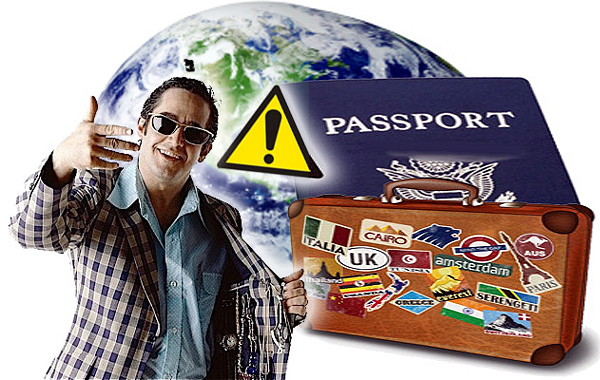 How about if each of you – especially if you’re strangers to me – each send me $100 for the best dinner you’ve ever had in your life. We’ll do it in about a year. Promise it will be the most memorable meal of your life!
How about if each of you – especially if you’re strangers to me – each send me $100 for the best dinner you’ve ever had in your life. We’ll do it in about a year. Promise it will be the most memorable meal of your life!
Any takers?
There’s a reason that travel purchases aren’t capitalistic. There’s no enforceable contract between the consumer and the provider of the service. In a sense it’s just hype. You can’t try it on. You can’t return it when it arrives broken. There’s no warranty other than ebullient promises.
It’s more true internationally than domestically, but even domestically it’s true enough. Whether credit cards debited for no-shows at hotels or rewritten airline tickets, there’s no law ever implemented outside Judge Judy’s court to effectively police the promises.
You pay for travel before you get it. It’s like a future stock trade, and the laws that have failed so miserably in governing these kinds of financial derivatives have led to all our financial collapses and continue to threaten capitalism every day.
When you sign a Reservations Form the terms are relatively simple and usually boil down to anything that you pay is nonrefundable.
Easy to understand, presumably easy to litigate. The problem is that the cost of litigation is usually greater than the claim. There’s also differing State laws that are often contradictory, and then there’s the complete impossibility of litigation internationally.
Alternate remedies like the “Better Business Bureau” or government agencies are basically a waste of time.
Unlike the sale of a house or a car or a pair of shoes, you pay for travel before you get it. That’s not how capitalism is supposed to work. So the immense body of law for commercial and other capitalistic transactions doesn’t apply to travel. The purchase of travel is like playing the slots, and after the coins either gush out or you’re left sacked, no law can mitigate the gamble.
Internationally it’s a hoot. This is especially true in my neck of the woods – Africa. There’s very little law governing travel transactions across borders and it’s generally restricted to neighboring countries. Once another country or ocean intervene, there’s no law.
Even the biggest and most obvious capitalist transactions internationally have difficulty using contracts or law to govern their business. I remember a few years ago when Rio Tinto, a mostly English mining company, blew up a sacred aboriginal site in Australia after seven years of losing court battles in Australia! It blew it up, anyway, then apologized. Rio Tinto continues operating in Australia.
Even these biggest of deals will rarely be governed in court. Rather, it plays out diplomatically or in global quagmires like the World Trade Organization.
So imagine if a giant petrol company in Houston must adjudicate its dispute with workers in Nigeria by going to its State Department, where does the traveler go for recompense from the safari scam artist in Botswana?
Nowhere. And that’s one reason there are so many scam artists in travel.
And it leads to some wryly comic situations of the sort we’re in now, this awful pandemic.
The persistence of the pandemic is decimating the travel industry. The survivors are heaving out the window all their terms and conditions.
Basically I and my companies over the years have ignored most contracts, despite the thousands we’ve signed. If we want to maintain a good reputation and relationship with the company, then we paid for everything we bought at agreed prices and we even paid penalties for late cancellations and no-shows. But we never followed contract details for doing so, other than coincidentally.
And that’s precisely what all those survivors in the African travel market are owning up to, today. The hilarity comes when they try to “codify” their desperation. This is especially true of South African travel companies which suffer from serious overdoses of self-importance.
One came across my desk this morning from an excellent South African travel company. In revising (read: heaving out) their T&C’s they attempted to define “Force Majeure.” Well, “Force Majeure” is a very important legal term usually defined legislatively country by country. The fact that this one small business is taking on the parliamentarian responsibilities of a nation is so emblematic of South African travel business mentalities.
And of course, it’s all for nought. Basically what travel companies are telling the traveler today is, make an offer. Anything’s possible. Or in the same vein, Contract? What Contract?
You don’t need any definitions for that.